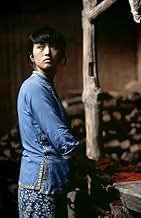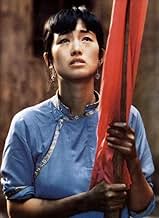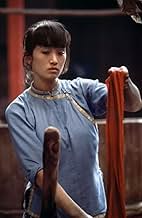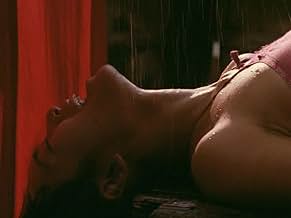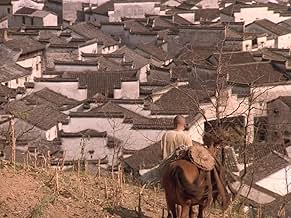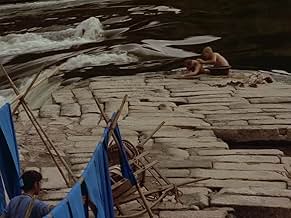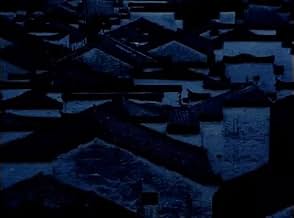'Ju Dou' is a fine example of cinema at its rawest. Director Zhang Yimou hardly makes any use of special effects, keeps the background score at a minimum, makes the sets look very real (they don't even look like movie-sets) and yet he avoids his movie to look like a documentary. He seems to have relied most on the camera and actors to do the work. Even though the film is set in the 20s, 'Ju Dou' was one of the most controversial movies in China and it was banned arguably due to the way a powerful elderly man was depicted, a woman rebelling against a man and/or the depiction of injustice towards women in China and preference for a male heir.
A natural beauty, Gong Li in her early days, plays the title role of a peasant girl who's sold to an evil old man. This couldn't have been an easy part for a young actress to play but Li makes it look otherwise. She is phenomenal to watch. Li Wei as the cruel master does a great job too and he adds a humanity to his character that makes us sympathize for him. Li Baotian, as the evil master's nephew with whom Ju Dou has an illicit relationship, is just as brilliant.
The cinematography deserves special mention and some of the visuals and sceneries of the Chinese landscape are breathtaking. The writing is very good as the film sticks to the main story (no subplots) and the characters are rich, even that of the child who doesn't say anything. 'Ju Dou' does tackle a lot of issues (which is perhaps why it was banned) that are displayed graphically or hinted specifically. Also there's a lot of irony in the story that beautifully works. For example how the impotent evil master was once so intimidating that he tortured his previous wives to death but how quickly this turns around after Ju Dou gives birth and later on he sees hope in the child and uses him to vindicate his helpless state but that too has consequences. Yimou presents it all without throwing it at the audiences face.
Apart from the aforementioned, there's a visually poetic feel about 'Ju Dou'. It's executed in a very artistic way. The way he shows the dye mill, (which looks like any other old overused mill), and then the colourful sheets of cloth make is dazzling to look at. Also the mountains and river are shot in such a way that they look like beautiful postcards. Then there's another shot of a beaten up Gong Li sitting next to a lantern while the flickering firelight reveals her sad face.
I found the ending a little too abrupt. Perhaps Yimou should have developed this. Lastly, Yimou's intentions seem honest in the way he tells the story. He does not go over the top by including melodrama or making it preachy nor does he make it too simplistic. It's one of his finest works and some might find it difficult to watch but in the end it's a fine work of art that tells a relevant story.


